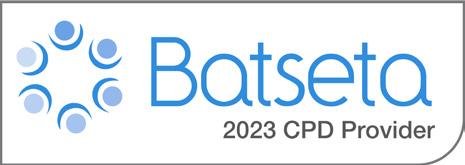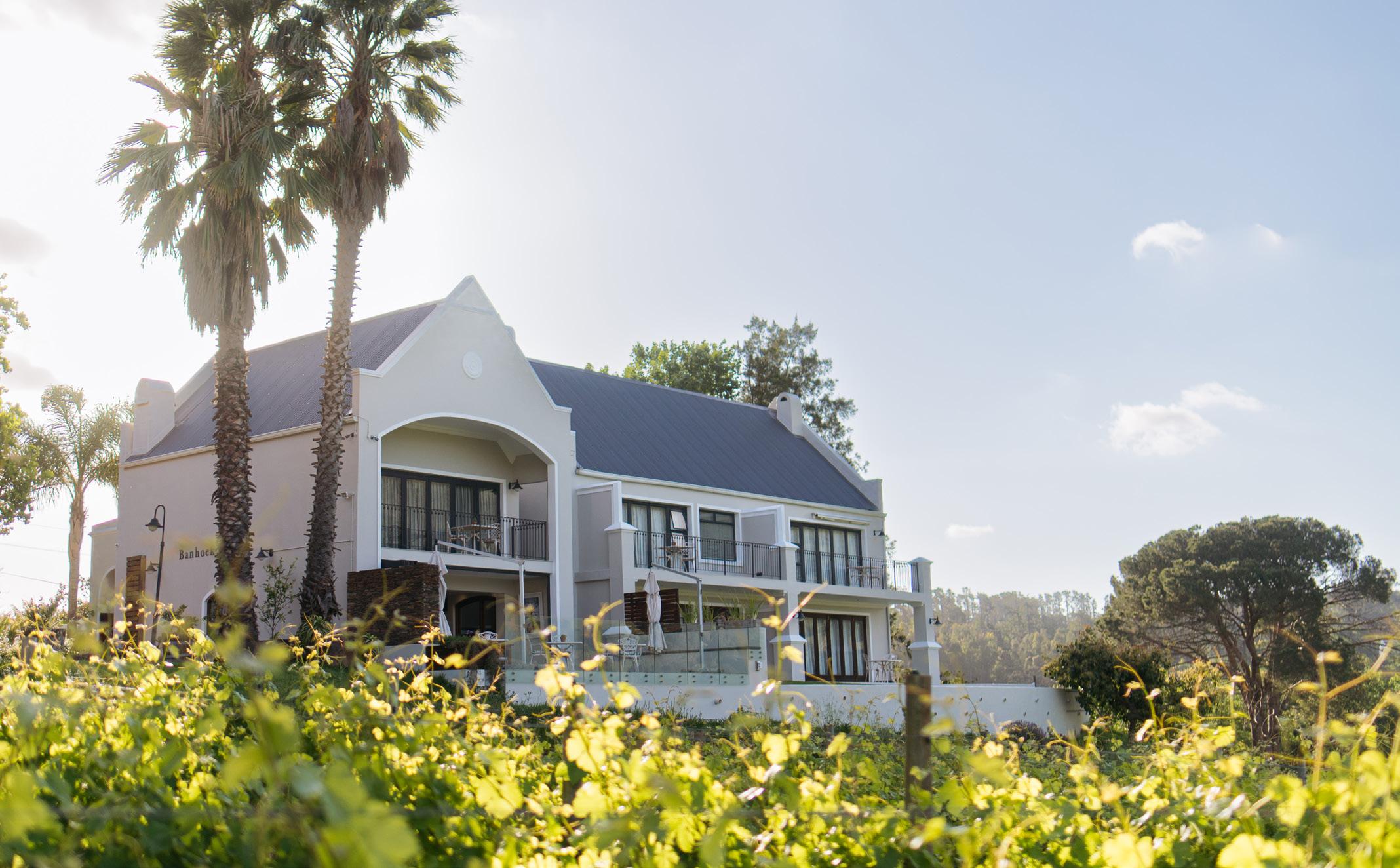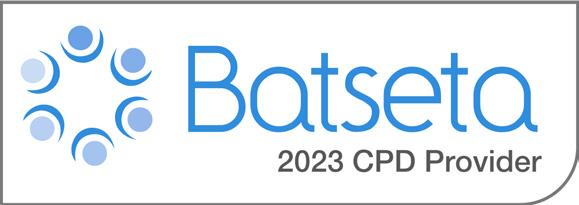










The ASISA Academy, in partnership with the ASISA Foundation, is offering the following high quality, fully-sponsored, independently delivered Retirement Fund Trustee Education Workshops to South African Retirement Fund Principal Officers and Trustees. The ASISA Academy is an accredited CPD provider for the Batseta Council for Retirement Funds with each workshop carrying 3 Batseta CPD credits.
1. INVESTMENT FUNDAMENTALS
2. RETIREMENT FUND TRUSTEE GOVERNANCE & ETHICS
3. RESPONSIBLE INVESTING
4. EMPLOYEE BENEFITS
5. DEATH BENEFITS
6. ANNUAL FINANCIAL STATEMENT ANALYSIS

7. INVESTMENT POLICY STATEMENT FORMULATION & ASSESSMENT
8. INVESTMENT MANAGEMENT FEES & COSTS
9. INVESTMENT DEFAULT REGULATIONS
10. PRIVATE EQUITY
11. INFRASTRUCTURE INVESTING
12. PROTECTION OF PERSONAL INFORMATION ACT
CONTACT:
LEARN@ASISAacademy.org.za
www.tinyurl.com/RFTE-ASISA
 ONLINE HALF DAY WORKSHOPS
ONLINE HALF DAY WORKSHOPS




Real assets are tangible investments that have an intrinsic value due to its substance and physical properties. By investing in real assets, a retirement fund can diversify its portfolio as the value of real assets are determined by factors that differ from those of financial assets.
The money in a retirement fund has to increase over time in order to pay out pensions to members once they retire. Money has the potential to increase or grow if you “plant” it in the right asset classes. In the world of finance, an asset is anything that has economic value. It can be something that you can sell for money, like a house, farm or classic car, or savings in the bank.
Real assets refer to tangible or physical things that have inherent value, such as a building or a gold bar. A building provides shelter, a vehicle can get you from point A to B, and gold is used in electronics, regardless of what happens in the financial markets. In contrast, financial assets, like shares, cannot be touched. Their value depends on market conditions, the performance of the underlying company and investor sentiment.
Here are common types of real assets:
This includes residential properties (houses, apartments), commercial properties (office buildings, retail spaces), industrial properties (warehouses, factories), and land. Real estate can generate rental income and increase (or decrease) in value over time.


Infrastructure
Infrastructure assets encompass physical structures and systems that support economic activity, such as toll roads, airports, railways, and utilities (water, gas, electricity). These assets often generate revenue through usage fees or longterm contracts. Renewables, such as renewable energy infrastructure, can also be categorised as real assets. They are physical assets that generate clean and sustainable energy from sources like sunlight, wind, water, and geothermal heat. Investments in renewable energy infrastructure, like solar farms and hydroelectric power plants, have become increasingly popular in recent years due to the growing focus on transitioning to a low-carbon economy.

Siyanda rents a house in Queenstown and owns a homestead and land next to the Tsomo River in the Eastern Cape where his sons farm cattle. He also takes part in a stokvel and receives R10 000 once a year. Siyanda’s house is a real asset as it generates rental income for the owner. Siyanda’s homestead, land and cattle are also real assets. They are all physical things that have value and can be traded for cash. His stokvel money is an example of a financial asset.
Real assets are physical assets a company owns and which inherently have worth regardless of market conditions. For example, a company’s land, vehicle fleet and office buildings are real assets. However, its brand name, even though it has a market value, is not a real asset.
Financial assets are either in cash or can be quickly converted to cash. They include investments such as shares on the stock exchange, debt bonds and cash deposits. Financial assets are highly liquid – they can easily be converted into cash by selling them in the relevant marketplace. Real assets require much more capital and cannot typically be sold immediately without a loss.
Commodities
These are tangible goods or raw materials that are typically used in the production of other goods, or consumed directly. Examples include precious metals (gold, silver), industrial metals (copper, aluminium), energy resources (crude oil, natural gas), agricultural products (wheat, corn), and livestock.

A retirement fund should invest its capital in a range of asset classes. Investing in real assets can help a retirement fund to maximise its returns and diversify its portfolio because of the following:
• Protection against inflation. Inflation can have a negative impact on financial assets such as bonds and cash. If the inflation rate outpaces the interest rate earned on cash deposits, the real value of savings decreases. Real assets provide investors with a hedge, or protection, against inflation. When inflation is high, real asset prices go up, thus appreciating in value.
Natural resources
These assets relate to the extraction, or ownership, of resources from the earth and include oil and gas reserves, plantations, mineral deposits (such as coal, iron ore), and water rights. Your retirement fund can invest in companies involved in mining, oil and gas exploration and production, forestry or agricultural enterprises.

• Opposites attract. Real assets have a tendency to behave differently from equities. This means that when the value of shares goes up or down on the stock exchange, real assets may not necessarily follow suit. The same is true for bonds and cash. In this way, real assets offer portfolio diversification.
• A steady income. Real assets offer steady income streams through rental income (from office blocks) or leasing land or rooftops for solar energy projects.
• Stability. In times of market volatility or geopolitical tensions, investors often tend to invest in gold because the commodity has a long-standing reputation as a safe-haven asset. In general, real assets offer stability as inflation, currency valuation, and macroeconomic factors have less of a bearing on their value.
Collectibles

These are valuable items that are often rare, unique, or historically significant, and include fine art, rare coins, stamps, antique furniture, vintage cars, and wine. The value of collectibles can appreciate over time, driven by factors such as scarcity, demand, and cultural significance. Bear in mind these are typically difficult to sell as it’s often a niche market.
• Long-term growth. The value of real assets, particularly those that are scarce or in high demand, like open land in a city, has the potential to appreciate over time. As a result, real assets can provide significant capital gains to investors who are able to hold them for the long term.
• Finance Strategists: Real assets
• WallStreetMojo: Real assets
Retirement funds can invest in property by buying residential or commercial buildings or land, and leasing it for rental income, but it’s a time-consuming business. Here is a summary of much easier ways a retirement fund can get exposure to the property market.
Property has long been a popular asset class that refers to the ownership or control of physical land and/or buildings in the expectation of earning returns through appreciation, rental income, or both. Property is an attractive option for investors seeking diversification and long-term wealth accumulation.
Traditional property investments
Investing in traditional property can take many forms, such as residential properties (e.g. single-family homes, multi-unit apartments), commercial properties (e.g., office buildings, retail spaces), industrial properties (e.g. warehouses, manufacturing facilities), and raw land (undeveloped land).

Real estate investment can be done directly, where investors purchase and manage properties themselves. For example, some retirement funds might own their office buildings or own a commercial property that is leased out.
Alternative property investments
Direct investment requires time, management and effort. Retirement funds can also get indirect exposure by investing in shares in property groups. These alternative investment solutions are on the rise in South Africa as investors seek to align their portfolios with their beliefs and values. Growth has also been
spurred on by changes in legislation, such as increases in the thresholds (see below) up to which retirement funds may invest.
15% in private equity
25% in property
45% in foreign investment
45% in infrastructure projects
By far one of the most popular vehicles to invest in property is through real estate investment trusts (REITs), which are publicly traded companies that own and manage income-generating properties. REITs provide an opportunity to invest in real estate without owning and managing properties. They offer regular dividends and the opportunity for capital appreciation.
Another option is for a retirement fund to pool money with others and invest in a property fund that is managed by a reputable asset management company and functions much the same as a unit trust fund.
These mutual funds can invest in property companies that are listed on the stock exchange, both locally and globally, or a combination of both. Many investment companies have established property funds, for example, Coronation’s Property Equity Fund or Sanlam’s Property Fund.
A property fund can also invest directly in physical properties where the asset company buys and manages various properties on behalf of the investors. Usually, these funds are privately held, like Futuregrowth's Community Property Fund or Fairtree’s Operational Real Estate Fund (see p. 8).
Alternative property investments refer to non-traditional real estate investments that fall outside of the traditional categories of residential, commercial, and industrial properties. These can include investments in unlisted shopping centres in townships and rural areas and mixed-use developments.
Property type
Deciding between property funds and REITs is like deciding between investing in a unit trust and buying individual shares. A property fund usually consists of various underlying real estate companies, shares and REITs. A REIT is typically managed by a single company that acquires and manages various real estate assets.
• Accelerate Property Fund
• Attacq
• Delta Property Fund
• Dipula Income Fund
• Emira Property Fund
• Equites Property Fund
• Fairvest Limited
• Fortress REIT
• Growthpoint Properties
• Heriot REIT
• Hyprop Investments
• Indluplace
• Investec Property Fund
• Liberty Two Degrees
• Oasis Crescent Property Fund
• Octodec Investments
• Rebosis Property Fund
• Redefine Properties
• Resilient REIT
• SA Corporate Real Estate
• Safari Investments RSA
• Spear REIT
• Stor-Age Property REIT Limited
• Texton Property Fund
• Transcend Residential Property Fund
• Vukile Property Fund
Risk and return profile
Traditional property investments
Residential homes, commercial properties, and land.
Considered to be relatively stable with moderate returns over time, as they tend to be based on longterm appreciation and rental income.
Market accessibility Typically, more accessible to individual investors as they are commonly available in the open market and can be purchased directly.
Diversification Offer more stability and reliability but may lack the diversification benefits that alternative property investments can provide.
Income generation Typically, through rental payments from tenants.
Investment horizon
Often considered long-term investments, with a focus on capital appreciation over time.
Alternative property investments
Co-working spaces; libraries; shopping centres in rural and informal areas; integrated, mixed-use developments servicing entrepreneurs and small business owners with retail, office and event space; as well as sporting, educational and cultural facilities.
May offer higher potential returns but also come with higher risks due to their unconventional nature and potentially higher volatility.
May require specialised knowledge, contacts, or higher minimum investments, and may not be as readily available or accessible to individual investors.
Often used as a means of diversifying. They provide an opportunity to invest in assets that may not be correlated with traditional property investments, thereby potentially reducing overall portfolio risk.
Rental income as well as licensing fees, royalties, or revenue-sharing arrangements.
May have varying investment horizons, ranging from short term to long term.
• CDC Group: What is the impact of investing in construction and real estate?
• Futuregrowth: Community Property
• GroundUp: A look inside Dunoon’s new state-of-the-art library
• Investopedia: REIT vs. Real Estate Fund: What’s the Difference?
• Private Property: Townships: the new investment frontier
• SA REIT Association
• Scaling Up the Upgrading of Informal Settlements: A Scoping Study of South African Good Practices and Innovations report by L.R. Cirolia and G. Abrahams (prepared for the Worldbank, 2016)
A retirement fund can diversify its property portfolio (and drive social change) by investing in innovative property solutions, ranging from student housing to malls in rural areas.

Long gone are the days real estate investment referred only to office buildings and industrial complexes; these have struggled to keep up with a changing world. Alternative real estate investments offer investors an opportunity to diversify their portfolios beyond these traditional property assets. Here are some innovative local examples:
Student housing is a niche market that caters to the housing needs of university and college students. South Africa has a growing student population, with approximately 1,2 million students enrolled at tertiary institutions. As universities and colleges often do not have sufficient on-campus accommodation, there is a growing demand for off-campus student housing.
998 beds – the intake target is January 2024, and Cape Town Station, with upwards of 3 000 beds. The latter is the largest single-phase student development accommodation in the country. Another example is Citiq's Mill Junction where they upcycled shipping containers and old silos for student housing, currently managed by CJ Students.

Student housing can provide investors with a higher yield compared to traditional rental properties. As students typically share accommodation, the rental income per square metre can be higher. Additionally, the leases for student housing tend to be shorter, providing investors with more flexibility.
However, it carries risks such as tenant turnover, maintenance costs, and regulatory risk. Investors should conduct thorough due diligence on the location, quality, and management of the property.
In South Africa, the storage unit market is relatively small, but it is growing as more people seek secure storage space for their belongings. Currently, there is only one self-storage REIT on the JSE, the Stor-Age Property REIT Limited. It was first listed in October 2015 and gives investors access to prime self-storage assets in South Africa’s major cities.
For example, the Eris Property Group, one of the largest players in the sector, currently has two projects underway: units on Jorissen Street in Braamfontein that will hold
Investing in storage units can provide investors with a reliable income stream as the leases tend to be long term and there is a growing demand. Additionally, maintenance
costs are relatively low and these units offer a low level of management compared to other real estate options.
However, investing in storage units carries risks such as tenant turnover, regulatory risk, and competition from other storage unit providers. Investors should conduct thorough due diligence on the location, quality, and management of the storage units.
Alternative property investments come with higher risks as they don’t have the same historical track record and may not be as regulated as, or may have lower liquidity than, conventional investments. But they also have the potential for higher returns as they offer diversification and access to niche markets, among others. And most importantly, they can also have a lasting social impact.
In most instances, rural and informal areas lack basic services and infrastructure, i.e. networked services, such as water, sanitation, drainage, electricity, roads and transportation. In addition to the lack of “hard” infrastructure, these areas also tend to have reduced access to social services such as health, education, and safety facilities.
Healthcare or medical real estate is a specialised market within real estate that includes leased buildings and offices for the healthcare industry, such as hospitals, pharmacies, laboratories, and retirement complexes with frail-care facilities.
The aging population has increased the global demand for healthcare facilities, although to a lesser extent locally.
Medical office buildings also showed resilience during the Covid-19 crisis, providing stable returns compared to other traditional property markets. Post lockdown, these buildings are experiencing a surge in patient visits, as medical procedures cannot be postponed indefinitely.
Investing in property in rural and informal areas can hold several social and economic benefits for the local communities, namely:
• During the construction phase, artisans and labourers from the local community are often employed.
• Property development provides opportunity for temporary employment during the construction phase, and also creates permanent/long-term jobs during the life cycle of the property.
• Shopping centres or malls provide local communities with access to a wider range of products and services. Additionally, they can also provide access to key social services, such as social grant payout points and affordable clinics.
• Property development can also act as a catalyst for the development of local infrastructure, such as local transport hubs.
The Growthpoint Healthcare Fund is the first unlisted healthcare fund to invest exclusively in healthcare property assets in South Africa. Its mandate is to acquire and develop acute, day and specialist hospitals as well as laboratory and pharmaceuticals manufacturing and warehousing facilities.
On 1 December 2020 the Cintocare Hospital in Tshwane – a joint specialised surgical hospital development by Growthpoint and Cintocare – opened its doors. It became the first “green” healthcare property in Africa.

The healthcare industry offers a stable investment due to high installation costs and the difficulty of moving medical equipment, resulting in a high probability of lease renewal. The industry encompasses a wide range of facilities, from medium-sized laboratories to large hospital campuses.

However, the bespoke nature of these buildings limits their alternative uses, making them challenging to convert during market downturns. Other risk factors include significant upfront capital expenditure, and the involvement of specialist design and construction consultants. Ongoing capital investment is necessary to meet legal and community expectations throughout the facility's lifespan.
The Futuregrowth Community Property Fund currently owns 24 properties in eight provinces. The shopping centres are located in prime locations within townships and rural areas around the country, like The Crossing in Mahikeng and the Diepsloot Mall. The Fund engages with local communities on sustainable projects focused on development and community upliftment. The majority of the staff employed by centre management and retailers are also from the local communities.
• Allens: Healthcare property - an emerging trend for investors
• BusinessLIVE: Student housing risks in new focus
• Eris Property Group: The largest single phase student development accommodation in SA
• Ernest Lim blog: Are REITs just for retirees?
• Forbes: What to consider before investing in real estate and other alternatives
• Futuregrowth: Community Property Fund
• International Finance Corporation: The Student Housing Landscape in South Africa report
• Investopedia: Alternative Real Estate Investments
• Moneyweb: What’s behind the self-storage property boom?
An operational real estate investment is an alternative type of real asset investment whereby your retirement fund invests in a business that owns real estate as well as in the operation of that business.
Global changes to the way we live are impacting the performance of traditional property investments. As a result, many investors are looking for alternative ways to invest in property.

Traditionally, property investment has always been about four pillars: residential (housing), industrial (factories), commercial (offices), and retail (shops). In the last 10 to 15 years there’s been a global shift in this asset class. Here are two examples:
1. The Covid-19 pandemic upended the commercial property market by forcing people to work from home. Now that the pandemic has waned, many employees –and companies – are turning to hybrid working, making commercial property investment a less sure bet than it used to be.
2. In Europe and America, the rise in online retailers like Amazon has transformed the retail space. Bricks-andmortar shops are closing down. And warehouses are springing up everywhere. This has made investing in traditional retail property more challenging. But it’s also created new opportunities to invest in warehouses and logistics hubs. South Africa is a few years behind this curve, and the transformation might never be as marked
here, but changes are already taking place – think of companies like Stor-Age and Takealot.
These changes in the market are forcing investors (like retirement funds) to think differently about their property portfolio. This doesn’t mean they’re reducing their allocation to this asset class. Property remains an important component of any diversified portfolio. But it does mean that they are looking for alternative ways to improve their returns. A recent PWC report entitled Emerging Trends in Real Estate identified “a longerterm and fundamental shift into more operational real estate”.
The UK Investment Property Forum defines operational real estate as “real estate investment where the return is directly and deliberately linked to the revenues and profits of the business conducted on or from the premises”.
This is in stark contrast to traditional property investments where you are investing in the property only and your income is dependent on collecting rent from tenants. With operational real estate, you are buying a business that owns real estate, but also the business itself.
Hotels and logistics warehouses (“beds and sheds”) are two of the most popular types of alternative property investments at the moment. Here are some other examples:
• Senior living / frail-care centres
• Student accommodation
• Restaurants / pubs
• Parking lots
• Petrol stations
• Resorts, golf courses, padel courts.
One popular way of investing in operational real estate is to buy and manage hotels. This is often done through private equity funds. Here’s how that could work:
• A private equity fund identifies a few hotels that, they believe, can be made more profitable. The fund convinces five investors to invest R10 million each (R50 million in total). These investors agree to lock in their money for a fixed period of, for example, seven years.
• The private equity fund also secures a R50 million loan from the bank. They’ve now got a combined R100 million to buy the hotels they’ve earmarked and to invest in, making the hotels more profitable. This is likely to involve streamlining the staff, improving the marketing, and upgrading the hotels from three star to four stars, among other things. It’s all about getting the hotels to peak at the end of the sevenyear period and requires a top-notch operational team.
• After the investment period expires, the private equity fund will sell the assets, repay the bank, and distribute the rest to the investors. Of course, the fund manager also gets a cut, based on how well the investment has performed.
With traditional property categories (especially retail and office space) encountering strong headwinds, now is a good time to consider alternative property investments. Investing in operational real estate through private equity gives you a chance to achieve higher returns than traditional property investment.
By investing in hotels in the UK through a private equity fund, for example, you can hope for annual returns of 12%+ IRR (internal rate of return) in pound terms. Of course, there is a caveat: returns this good are only achievable because your money is locked in for the entire investment period.
Property is a key component of any diversified portfolio. Property tends to deliver a steady return over the years, while equity can be much more volatile. We’ve all heard about not putting all of our eggs in one basket. But have you considered whether you’re putting your property eggs in the best available basket?
• Fairtree: Fairtree Operational Real Estate
• Investment Property Forum
• PwC: Emerging Trends in Real Estate 2023 report
Operational real estate is a property category, not an investment mechanism. Here are four approaches for investing in property:
• Private equity. As explained in the article this is probably the most popular approach.
• The stock exchange. Buying shares in a listed hotel group or storage company is investing in operational real estate.
• Real estate investment trusts (REITs). REITs are like unit trusts for the property sector. In SA, most REITS still specialise in traditional property types, but there’s more variety overseas.
• Direct investment. You could buy a hotel or storage facility (and get someone to manage it).
• Partner with the right people. Who’s buying the assets? Who’s going to run them? What’s their track record? Can you trust them? Due diligence is always important, more so if you’re locking funds in for between five and ten years.
• Beware of debt. Borrowing too much from the bank at the wrong time is the biggest mistake people make with property. Putting a number on “responsible” debt levels is tricky as this varies from investment to investment. The bottom line? Be cautious and ask lots of questions.
• Try to buy at the right time. Property is tied to cycles. You have to buy the right property at the right time. As we’ve seen in this article, different property classes have different cycles: you need to pay attention to the bigger trends that are driving these cycles.
A global energy shortage causes fuel prices to rise continuously, leading to an overall increase in the prices of goods and services.
Generates income from:
• Rental income
• The value of property increases (or decreases) over time.
Infrastructure
Generates income from:
• Usage fees like toll roads
• Long-term contracts for service delivery, like offtake agreements with Eskom for renewable energy projects.
Generate income from:
• Sale of products
• Lease agreements between landowners and extracting companies
• Mining and production.
Generate income from:
• Extraction and sale of resources
• Lease of land
• Renewable energy
• Tourism and recreation.
Generate income from:
• The value that can appreciate over time, driven by factors such as scarcity, demand, and cultural significance.
Real and financial assets behave differently – and often spread their risk by investing in both. Typically, depending
Property: Property prices typically increase along with the price of goods and services. Property is often considered a hedge against inflation.
Infrastructure: Cash flows (from higher toll or utility fees) from infrastructure investments rise along with inflation.
Cash: Money in the bank decreases in value because the high inflation rate eats into the purchasing power of cash.
Bonds: Inflation eats into the interest received on debt bonds.
Generates income from:
of recreation. such
Generate income from:
• Growing at a fixed interest rate each year.
Generate income from:
• The bond holder receiving fixed annual interest rate payments.
in opposite directions – in different economic conditions. Retirement funds depending on the market conditions, one of these should increase in value.
The inflation rate is low and stable at 2%.
• Being sold at a higher price than that for which they were bought
• Dividends being paid out to shareholders if the company performs well.


It is the difference between interest earned or received and the inflation rate. If the interest rate of your savings account is 8% and the inflation rate is 5%, your real return is only 3%.
Cash: Capital grows as the interest earned on savings by far outpaces the low inflation rate of 2%.
Bonds: The value grows as the interest received by far outpaces the low inflation rate of 2%.
Property: Homes and buildings are less likely to quickly become much more expensive or much cheaper, so the property market remains stable.
Infrastructure: Cash flows from infrastructure investments remain stable.
Think of all the businesses in South Africa – from the small barber shop on the corner and the established mall on the outskirts of town to the startup business that sells phone covers made from recycled materials.
All these businesses can turn a profit and are part of the South African economy. Yet typically, retail investors (like you and me) and institutional investors (retirement funds) can only invest in about 400 companies listed on the Johannesburg Stock Exchange.
These publicly listed companies are subject to stringent reporting requirements, necessitating consistent disclosure of financial performance and strategic decisions. Shareholders of public companies have vested interests and responsibilities, including voting rights and dividend earnings.
What about all the other companies that are not listed on the stock exchange, but also have investment potential? This “unseen” sector of the economy is massive.
Let us introduce the private equity fund. Private equity presents retirement funds with an avenue to invest in cuttingedge companies that remain beyond the reach of public markets. These funds enable investors to engage with a diverse range of private enterprises, spanning from pioneering startups like Lift Airline to established giants like Elon Musk’s SpaceX.
Private equity investments offer distinct characteristics that set them apart from traditional asset classes like listed equities and debt bonds. Here are several key aspects:
1. Exclusive access to private enterprises: Private equity is an avenue through which investors can engage directly with private companies. This provides an opportunity to invest in a diverse array of enterprises that may hold untapped potential.
2. Catalyst for growth: Private equity funds often acquire influential stakes in privately held businesses. By sitting on company boards and fostering strategic partnerships, fund managers actively contribute to the growth and success of these enterprises.

3. Long-term commitment: Investors in private equity commit their capital for extended periods, typically ranging from seven to ten years. There might be some intermittent payouts, but in general, private equity is an illiquid investment as your capital will be locked in for that period.
4. Realising returns: Private equity fund managers generate returns for investors by various means, including selling their stake in a company, selling the entire business, or orchestrating an initial public offering (IPO) on a stock exchange at the end of the fixed investment period.
5. Decoupled from short-term volatility: Unlike publicly listed companies, private equity investments are less affected by short-term market fluctuations caused by sentiment, news cycles or global tensions. This allows fund managers to prioritise long-term value creation and growth over immediate market reactions.
6. Agility in economic cycles: Private equity-backed businesses exhibit greater adaptability and agility throughout economic cycles. This resilience positions them well to weather market turbulence and to capitalise on opportunities. For example, during the Covid pandemic when office buildings suddenly became obsolete, private equity could, for example, supply capital to its businesses to ride it out or to redirect these spaces in a different direction, i.e. student accommodation or affordable housing, without having to go through laborious decision-making processes.
7. Risk and return dynamics: Private equity stands out for its exceptional risk-return profile among various asset classes, including property, equities, commodities, and debt bonds. This class offers the potential for substantial returns in proportion to the risks undertaken. While the prospect of high returns is attractive, it comes with the trade-off of illiquidity. Private equity investments are typically locked in for an extended period, requiring investors to forgo short-term liquidity for the promise of more significant long-term gains.
Retirement funds contemplating private equity investments must factor in these considerations:
Diversification: Private equity serves as a powerful tool for diversifying investment portfolios, granting exposure to a wide range of opportunities not available in public markets. Private equity also serves as a natural hedge during volatile market conditions that negatively affect traditional assets. According to The power of private real assets report by the Londonbased investment company Nuveem, private investments in real assets, like farmland, plantations, infrastructure and commercial real estate, have exhibited low or negative correlations to shares and bonds.
Catalysing innovation: Private equity investments can stimulate innovation by providing not only financial backing but also access to networks and expertise for startup companies. This support can foster entrepreneurship and catalyse the growth of ground breaking ventures. Your fund could play a part in establishing the next Google, Uber or Amazon.
Mitigating volatility: Private equity investments offer a buffer against market volatility due to their longer-term investment
The maximum percentage of capital a retirement fund may invest in private equity according to Regulation 28.
Why so little? Investments in private equity funds are locked in for between seven to ten years, while retirement funds need access to large amounts of capital to pay out pensions.
horizon. This stability can provide a sense of security amid unpredictable market swings.
Risk management: A private equity fund’s portfolio will usually consist of a few companies – from five to 20 – that operate within the same space or theme, ranging from operational real estate, and renewable energy solutions to financial technology. It is important to select a private equity investment company whose theme, strategy and risk appetite align with their limited partner's (e.g. retirement fund) mandate. Remember, you must trust the fund manager as a custodian of your capital for seven to ten years. Carefully check his track record and choose wisely.
As the real asset investment landscape evolves, the role of private equity is likely to gain prominence locally and globally. Often new global trends like, for example, sustainable transport solutions, have not yet gained significant traction in South Africa as in Europe. Through private equity, a retirement fund can get exposure to international trends and innovation in this space.
Locally, private equity funds stand as conduits to untapped prospects, holding the potential to drive innovation, foster entrepreneurship, and contribute to the growth of a vibrant and diverse economy. With South Africa’s high structural unemployment rate, nurturing well-trained, entrepreneurial leaders could lead to new alternative real asset ventures and employment.
• Atleha-edu: From Wall Street to Main Street: alternative assets and your investments
• Fairtree Elevant Ventures
• Nuveen: The power of private real assets
All these businesses can turn a profit and are part of the South African economy. Yet typically, retail investors (like you and me) and institutional investors (retirement funds) can only invest in about 400 companies listed on the Johannesburg Stock Exchange.
their
There are several factors that can destabilise the property market. However, four key factors stand out:
A very important factor that can have a significant impact on how properties are priced, and the demand for a property, is government legislation. This can include aspects such as changes in taxation, deductions, subsidies and zoning laws. As such, it is important to understand the current political landscape as it could greatly influence the affordability and availability of property, and subsequently the supply and the demand therefor.
The overall health of the economy, including interest, inflation and unemployment rates, can have a significant impact on the property market. When the economy is doing well, people are more likely to buy property, and prices may rise. Conversely, during an economic downturn, demand for property may decrease, and prices may fall. However, an economic downturn might not affect all investors in the same way. For example, a downturn may present opportunities as investors and first-time buyers might be able to make investments at a good rate and leverage the drop in prices. Service delivery also plays a role; property in areas with insufficient municipal services could lose value as people choose to move to well-run cities and towns.
Changes in demographics, such as population growth or shifts in age distribution, can also affect the property market and can have a significant influence on the types of properties the market demands. For example, an aging population may lead to increased demand for retirement homes or assisted living facilities, while a growing population of young adults may increase demand for rental properties. This type of
takes a
approach to
information can play an important role for investors as it helps them in predicting property market trends, such as a prospective buyer's or renter's market.

4 Technology
A major driver in recent years has been the increasing presence of technology, especially since Covid hit. This has resulted in an increasing number of organisations permitting employees to work remotely. This has subsequently led to an increased demand for properties offering flexible working arrangements, such as communal workspaces or houses with dedicated space for home offices. Other technological factors that can also play a role in the shift in the way people work are access to reliable internet connectivity and amenities that enable a remote working lifestyle. Considering the energy supply crisis, properties that are self-sufficient and sustainable or offer off-grid living will be more popular.
Irrespective of the vehicle through which one invests in the property market, investors should always be mindful of the various risks that can influence the performance of the property market. By carefully monitoring the various risks noted here, investors can lower their investment risks and make informed decisions.
• EasyProperties: 2023 South African Property Market Trends
• Getsmarter: Factors Affecting the Real Estate Market
• Moneyweb: Is it a good idea to invest in investment properties as a retirement plan?
• Private Property: Which factors influence the property market?
• Understanding South African Financial Markets by Karin van Wyk, Ziets Botha and Ingrid Goodspeed
Regardless of whether
retirement fund
traditional or alternative
investing in property, investors need to ensure they have a good grasp of the risks that can affect the performance of the property market.
There are various ways a retirement fund can invest in real assets. A retirement fund can invest directly in property by, for example, owning the fund’s office building, but most funds opt for less time-consuming investments like a real estate investment trust (REIT), property fund on the stock exchange or for investing in a private equity fund that buys and manages properties.
Although real assets can produce enticing returns, as with any investment, there are risks involved, including interest rate sensitivity, market volatility and cycles, increasing maintenance costs and property management fees.
As a trustee, you must be sure you choose the right investment company to manage your real asset investments on behalf of your retirement fund and its members.
Make sure the investment company’s objectives align with your fund’s mandate. Research their investment policy, the management team, the costs involved and their past performance before appointing them. Here are questions to guide you:

1. What is the asset manager's background and performance in real asset investing? These will give you a sense of their level of experience and past achievements.
2. Inquire about the investment strategy's compatibility with your financial objectives.
3. The asset manager should be able to describe the kinds of properties he invests in, the regions he invests in, and the process he uses to assess possible assets.
4. What are the fees associated with the investment? Real asset investing can be expensive, and it is essential to understand how much of your investment will be going towards fees. Ask about any upfront fees, management fees, and performance-based fees. It is also important to understand how the asset manager is compensated.
5. What are the risks associated with the investment? The asset manager should be able to explain the risks involved in real asset investing, including market volatility, interest rate sensitivity, and the propertyspecific risks. He should also be able to explain how he mitigates these risks and what steps he takes to protect investors' capital.

6. Why does the asset manager believe retirement funds should invest in real assets in the current market? Ask them to discuss both favourable and unfavourable characteristics of real asset investments.
7. Who in the company makes the final decision to invest? Under what circumstances would an investment be declined?
8. Ask about debt. Borrowing too much from the bank at the wrong time to invest in property is the biggest mistake people make with property. Ask the asset manager to explain how they deal with debt.
9. How is the due-diligence process documented?
10. What type of investment strategy does the company use and how does it differ from its competitors?
• Futuregrowth: What to ask your asset manager: Impact investing
• Moneyweb: Investing in property: The good, bad and the ugly
• Morningstar: The Role of Real Estate Investments in a Portfolio
• Teachers’ Retirement System of the State of Illinois: Emerging Manager Database Questionnaire
In Sesotho, when you tell someone to “Atleha” you are telling them to prosper. By combining “Atleha” and “edu” we want to contribute to quality financial education.
Our purpose at Atleha-edu, a non-profit company (NPC), is to help ordinary South Africans save and invest for a better tomorrow. We do this through Financial Sector Code (FSC)-compliant awareness and interactive education programmes focused on retirement fund trustee, principal officer, management committee member, and fund member awareness and education initiatives.

We provide accessible, quality consumer financial educational (CFE) content via:
Atleha-edu’s CFE offers the following benefits:
• Retirement Fund Trustee and Member education on topical retirement fund issues, as envisioned by the Financial Sector Conduct Authority (FSCA) and Financial Sector Code (FSC)


• A mixture of educational publications, short articles, video and audio content (including translations into various African languages, such as isiZulu, Sesotho and isiXhosa)
• Educational content accredited for BATSETA Continuous Professional Development (CPD)
• All content is available at no cost
• No funder or service provider product marketing as per FSTC Guidance Note 500
Per the requirements of FSTC Guidance Note 500, all Atleha-edu resources on the Atleha-edu website are made available to retirement fund trustees, principal officers and members at no cost. Atleha-edu has full editorial control over educational content and funder branding.




• Atleha-edu NPC receives FSC Consumer Financial Education funding from a number of industry partners and funders.
• We are most grateful to the ASISA Foundation, ASISA Academy, Alternative Prosperity Foundation and BATSETA Council of Retirement Funds for South Africa for their strategic partnership and funding and implementation support.



• A full list of our funders is available via https://atleha-edu.org/partner-with-us/
All our Atleha-edu educational content and initiatives are aligned to a formal Theory of Change and Monitoring Evaluation and Learning (ME&L) programme. An external Monitoring and Evaluation service provider reviews our ME&L programme on an annual basis. The ASISA Foundation also reviews all Atleha-edu educational content and initiatives where it has specifically been a funder or co-funder.









Per the FSC requirements, an independent third-party service provider annually reviews all our Atleha-edu educational content and CFE initiatives and issues Atleha-edu NPC with an annual Independent Competent Persons Report (ICPR). The ICPR is provided to CFE funding partners who are then able to use the Atleha-edu ICPR when claiming FSC Scorecard points for their Consumer Financial Education spend through Atleha-edu NPC.





Sign up via https://atleha-edu.org/trustee-education/ to receive free FSC-compliant educational content from Atleha-edu NPC via our website (https://atleha-edu.org/) as well as via a
Email: info@atleha-edu.org | Phone: 021 851 0091
Atleha-edu Consumer Financial Education initiatives are accredited for Continuous Professional Development (CPD) in partnership with the Batseta Council of Retirement Funds for South Africa.

To register your CPD credits for having read this Atleha-edu Consumer Education publication, please complete the following quiz and return this completed form via email to: info@atleha-edu.org or post it to: Atleha-edu, Postnet Suite 272, Private Bag, Somerset West, 7129
Example question: Please choose the correct answer.
True or false? Foreign investment limits were revised upward by National Treasury in February 2022. x
1. Fill in the missing words. Real assets are ____________________________ things that have inherent value regardless of market conditions.
6. Fill in the missing words. Property is a key component of any ______________ portfolio. Property tends to deliver a steady return over the years, while equity can be much more volatile.
2. Shares on the stock exchange, debt bonds and cash deposits are examples of _________ assets?
7. What does REIT stand for?
3. True or false? Real assets provide investors with a hedge, or protection, against inflation. When inflation is high, real asset prices go up, thus appreciating in value.
8. Complete the sentence. Real estate investment can be done ________ ______where a retirement fund purchases and manages properties themselves. Or _____________ by buying shares in Property Funds or REITs on the stock exchange.
4. Choose the correct answer. Up to what percentage of its capital does Regulation 28 allow retirement funds to invest in property? 15% 25% Nothing
9. Select the correct answer: Which of these asset classes typically fare better in times of high inflation?
Cash and bonds
Property Shares
5. When an investment company buys a business that owns real estate (e.g. a hotel, or student accommodation) and then also runs the establishment themselves the investment is called:
10. Fill in whether the asset class is a real or financial asset
1. Commodities ___________________________________
2. Shares in a property company _____________________
3. Natural resources _______________________________